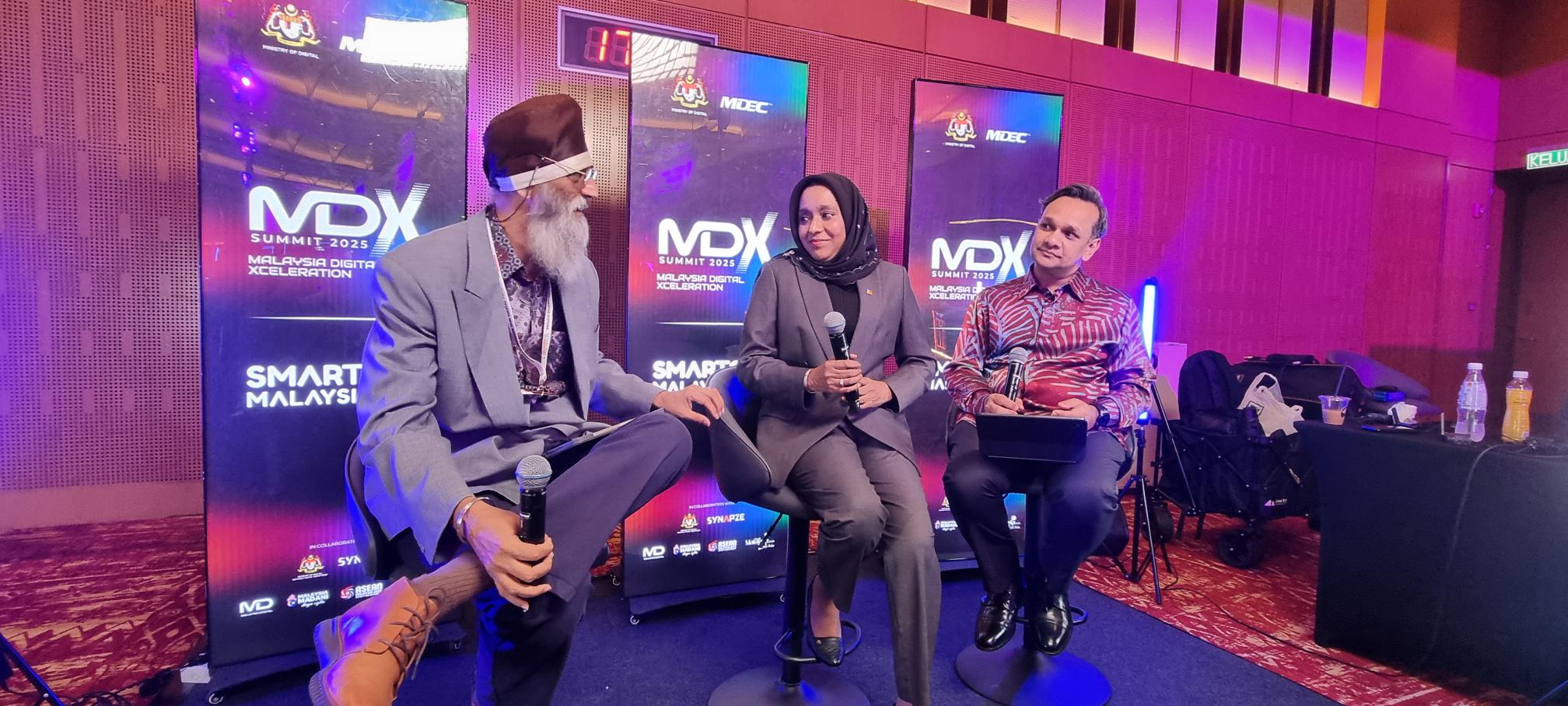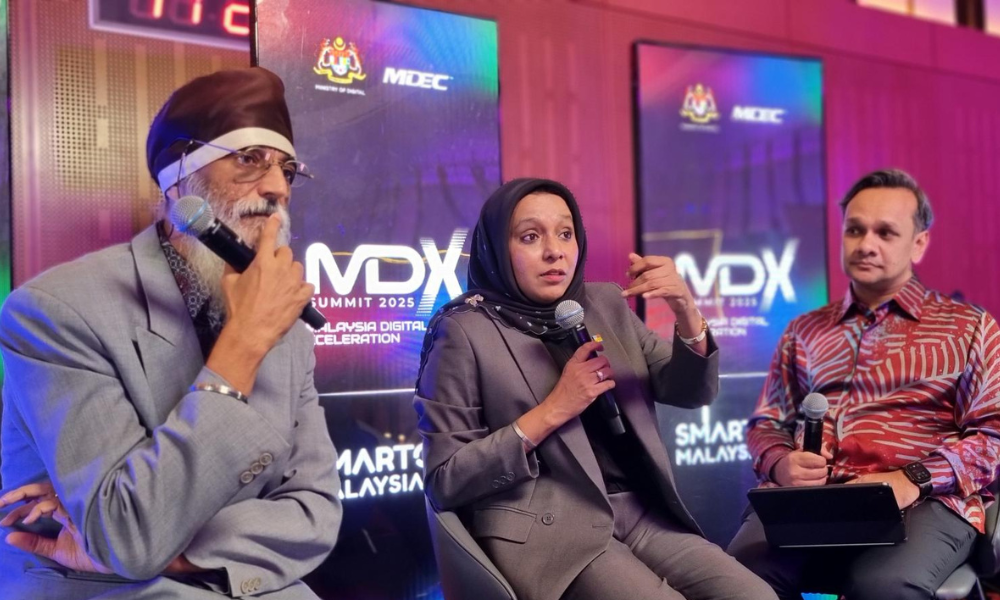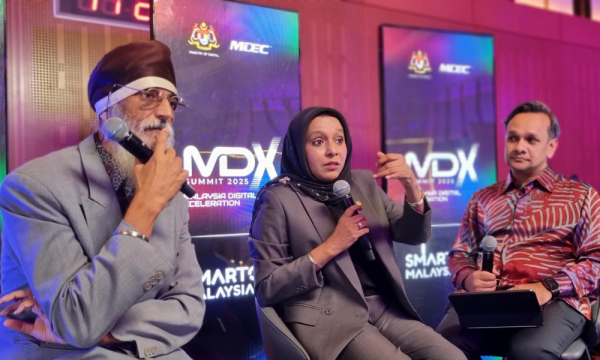Malaysia wants to be the trusted hub for ASEAN’s digital and AI economy, but in a race where technologies evolve at breakneck speed, ambition alone isn’t enough. Trust, inclusivity and agility will determine if the nation can lead or risk being left behind.
That was the message when Dr Jasmine Begum, Regional Director of Legal and Government Affairs at Microsoft ASEAN, and Anuar Fariz Fadzil, CEO of MDEC, joined Digital News Asia CEO Karamjit Singh at the Malaysia Digital Xceleration (MDX) Summit 2025.
Anuar summarised: “Three years ago, no one was talking about AI in this way. Now it’s unavoidable. Compute is doubling every few weeks. The challenge is not just what comes next, but how fast we can build the foundations of trust.”
Trust as differentiator
Trust, the panel agreed, is Malaysia’s critical differentiator. Malaysia may have all the ingredients to be a digital and AI leader, with infrastructure, technology and talent, but without trust, organisations will not build their next-generation businesses, base their digital operations or host their data here. With it, Malaysia can emerge as a regional digital and AI hub, trusted as a “digital embassy” – a place where operations are resilient, data is secure, laws are robust, and investors can sleep easy.

Jasmine outlined three essentials: customers must have full ownership of their data; regulations must be future-proof rather than analogue rules governing digital realities; and people must be treated as a renewable resource.
“We need to train for the AI era – ethical officers, privacy officers, AI specialists,” she said. “Inclusivity has to be the heartbeat. No one should be left behind, from the rural farmer to the global graduate.”
Anuar agreed, adding a sharper edge. “Fifteen years ago, putting Microsoft Office on a CV meant something. Today, it would be laughable. Now we’re training for jobs that don’t even exist yet.” Jasmine added that the lifespan of a degree has shrunk from decades to barely 15 months.
For both, continuous skilling, micro-credentials and apprenticeships are no longer optional. “This is about survival,” Anuar said. “If we don’t adapt, it’s curtains for us.”
Partnerships and regional leadership
Partnerships, they noted, will be crucial. Microsoft’s initiative to train 800,000 Malaysians, already exceeding 400,000, shows what industry can deliver.
At a policy level, MDEC is leading an ASEAN framework for cross-border cloud computing to set shared standards. “Our solutions are already being used in Europe and across ASEAN,” Anuar said. “This is not kampung-level innovation. With trusted standards, Malaysia can lead as a regional digital powerhouse.”
Talk must meet action
Karamjit reminded the panel that ambition needs funding. “Talk is cheap. The question is, will the budget show Malaysia is serious?”
Jasmine agreed that without tangible investment, Malaysia risks losing ground to better-funded rivals.

For both speakers, trust is not only an economic advantage but also a kind of currency. “Trust is the return on investment,” Jasmine said. “But currency, being current, is equally critical. If we are not current, we will lose out.”
Anuar closed by describing Malaysia as “the beating heart of ASEAN” during its chairmanship this year. But momentum must continue. “It’s not enough to have frameworks and studies. We have to implement. We have to walk the talk.”
As the session wrapped, what lingered was less about the technology itself than the choices Malaysia must make. To lead, the nation must prove that trust is not just a slogan but its strongest currency in a quantum-paced race.





